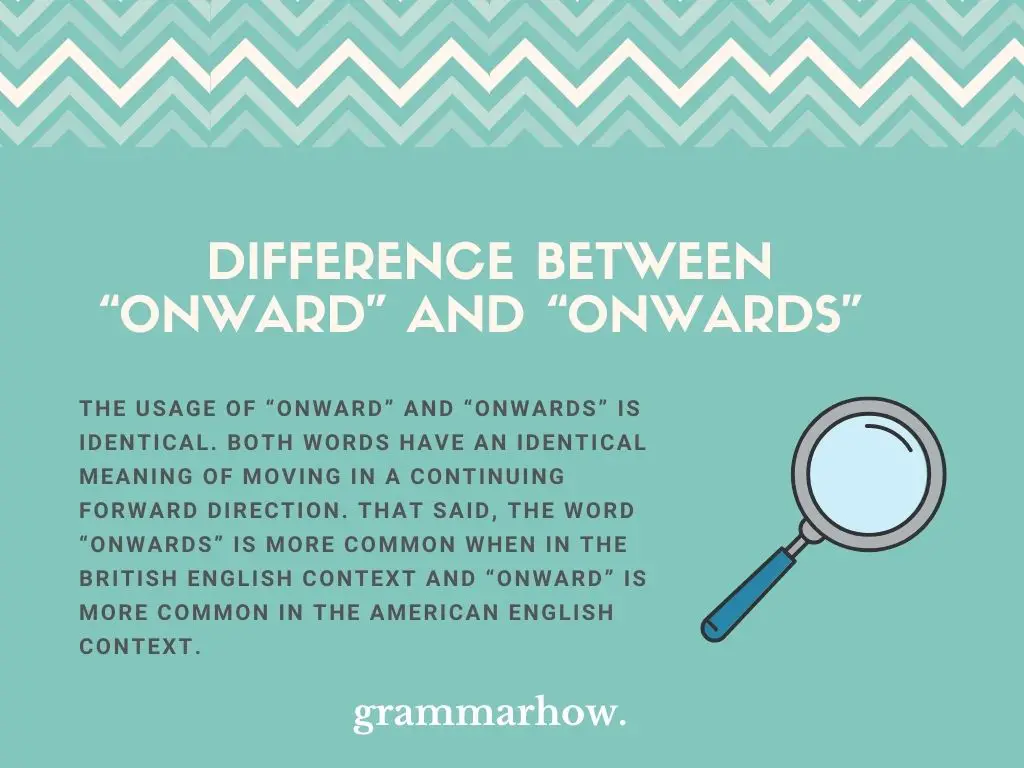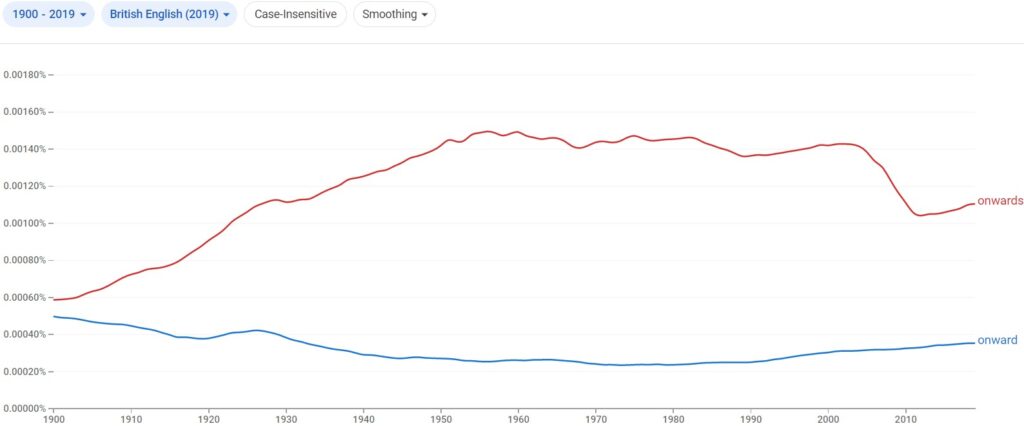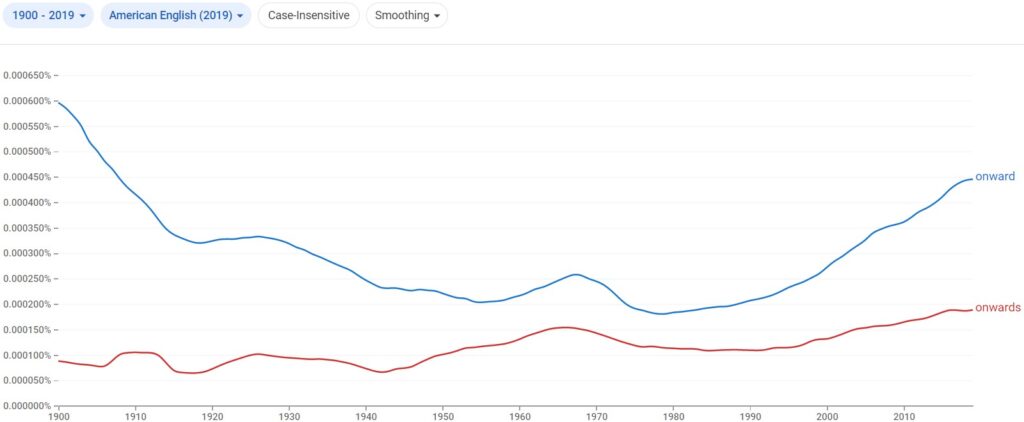This article discusses the difference in meaning and usage between “onward” and “onwards”. We will also provide useful examples that will enable you to gain a better understanding and deeper insight on the way to use the words in your daily life.
What Is The Difference Between “Onward” And “Onwards”?
The usage of “onward” and “onwards” is identical. Both words have an identical meaning of moving in a continuing forward direction. That said, the word “onwards” is more common when in the British English context and “onward” is more common in the American English context.

Both words hold an identical meaning, which is to move in a continuing forward direction. Both of these words are able to be used in an interchangeable fashion under most circumstances.
However, do take note of the difference between the words in the context of British English, in comparison to the context of American English. “Onwards” is more frequently used in the British English context and “onward” is more frequently used in the American English context.
Should I Use “Onward” Or “Onwards” In British English?
Although they are both identical in meaning, the word “onwards” is the more commonly used word in the British English context.
All through history, as the graph from Google Ngram Viewer shows, “onwards” has been more common. The word “onwards” is depicted in red, and “onward” is depicted in blue.

Nonetheless, “onwards” met a slow decline in 2004 and then rose slightly again in 2011.
Currently, in the British English context, it is more popular to use “onwards” than “onward”.
Should I Use “Onward” Or “Onwards” In American English?
Both words have identical meanings. However, in the American English context, the word “onward” is the more commonly used word.
All through history, as the graph from Google Ngram Viewer shows, “onward” depicted in blue has been used more frequently than “onwards”, depicted in red.

The word “onward” dropped in usage significantly from 1900 to 1950. During that same period, the word “onwards” rose slightly in popularity. Regardless of the slow decline or incline, the word “onward” continues to be higher in usage and popularity than the word “onwards”.
However, after that period, the word “onwards” made a turn and rose. Today, the word “onward” is more popular than the word “onwards”.
What Does “Onward” Mean?
“Onward” describes the movement of someone or something in a forward motion.
The Cambridge Dictionary illustrates that the word “onward” refers to the moving of something or someone in a forward direction, continuously, to a later time or more distant place. AP Style supports “onward”. To assist in your comprehension of using “onward”, these are useful examples:
- Those birds continued onward, moving towards their next location.
- From the 1960s onward, females were no longer mandated to wear dresses instead of pants.
- You will have to take care of some household chores from next week onward.
- The meeting dragged onward and seemed to not be able to come to a close.
- From onward, the military government will take over most important positions of authority.
What Does “Onwards” Mean?
“Onwards”, similarly, indicates the movement of someone or something going in a forward motion.
This is in accordance with the Cambridge Dictionary, which states that the word “onwards” refers to moving someone or something in a forward direction, continuously, to a later time or more distant place. Chicago Manual of Style supports “onwards”. To help you better comprehend using “onwards”, these are useful examples:
- After work, I make my way back home and I usually stay in my room from evening onwards.
- We moved onwards in a speedily manner so as to reach our destination on time.
- We rode onwards towards the circus.
- From next year onwards, taxes will increase.
- The hour long session dragged onwards to three hours.
Are “Onward” And “Onwards” Interchangeable?
“Onward” and “onwards” are interchangeable.
Both words are able to be used in an interchangeable fashion. However, it is important for you to note that there is a distinction between the British English context and the context of American English.
You may also like: Upward or Upwards – Difference Explained (Helpful Examples)

Martin holds a Master’s degree in Finance and International Business. He has six years of experience in professional communication with clients, executives, and colleagues. Furthermore, he has teaching experience from Aarhus University. Martin has been featured as an expert in communication and teaching on Forbes and Shopify. Read more about Martin here.
